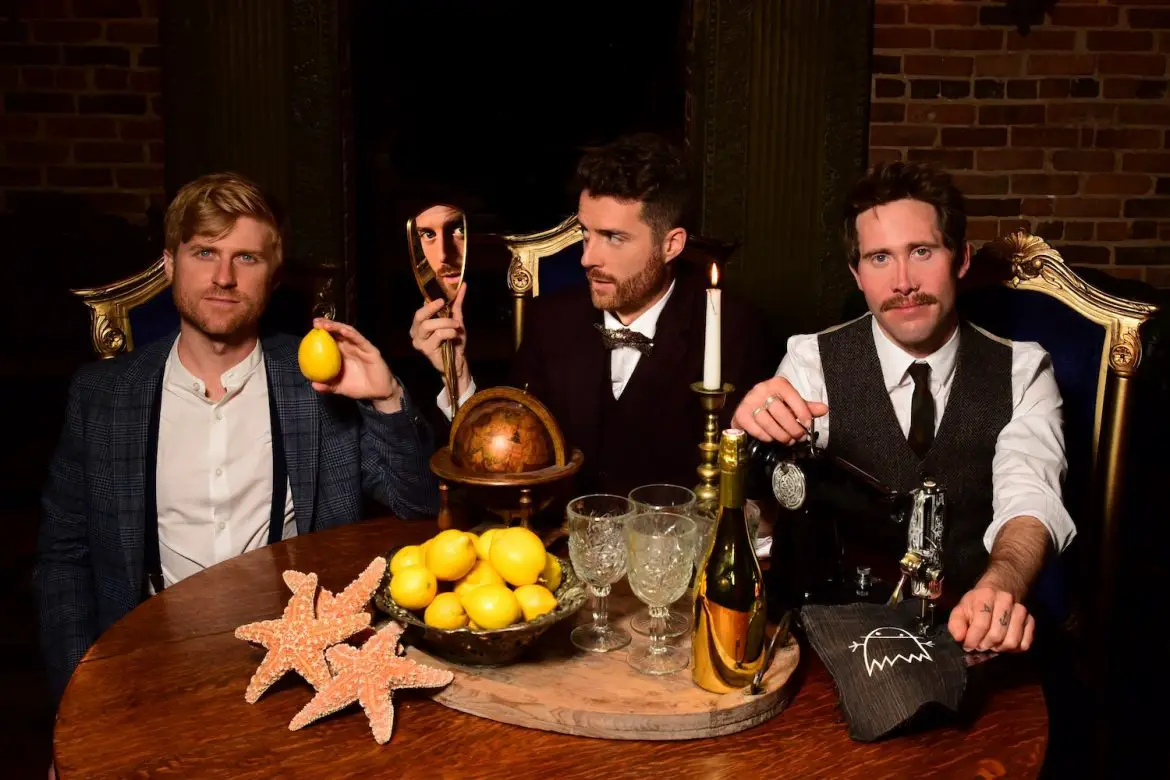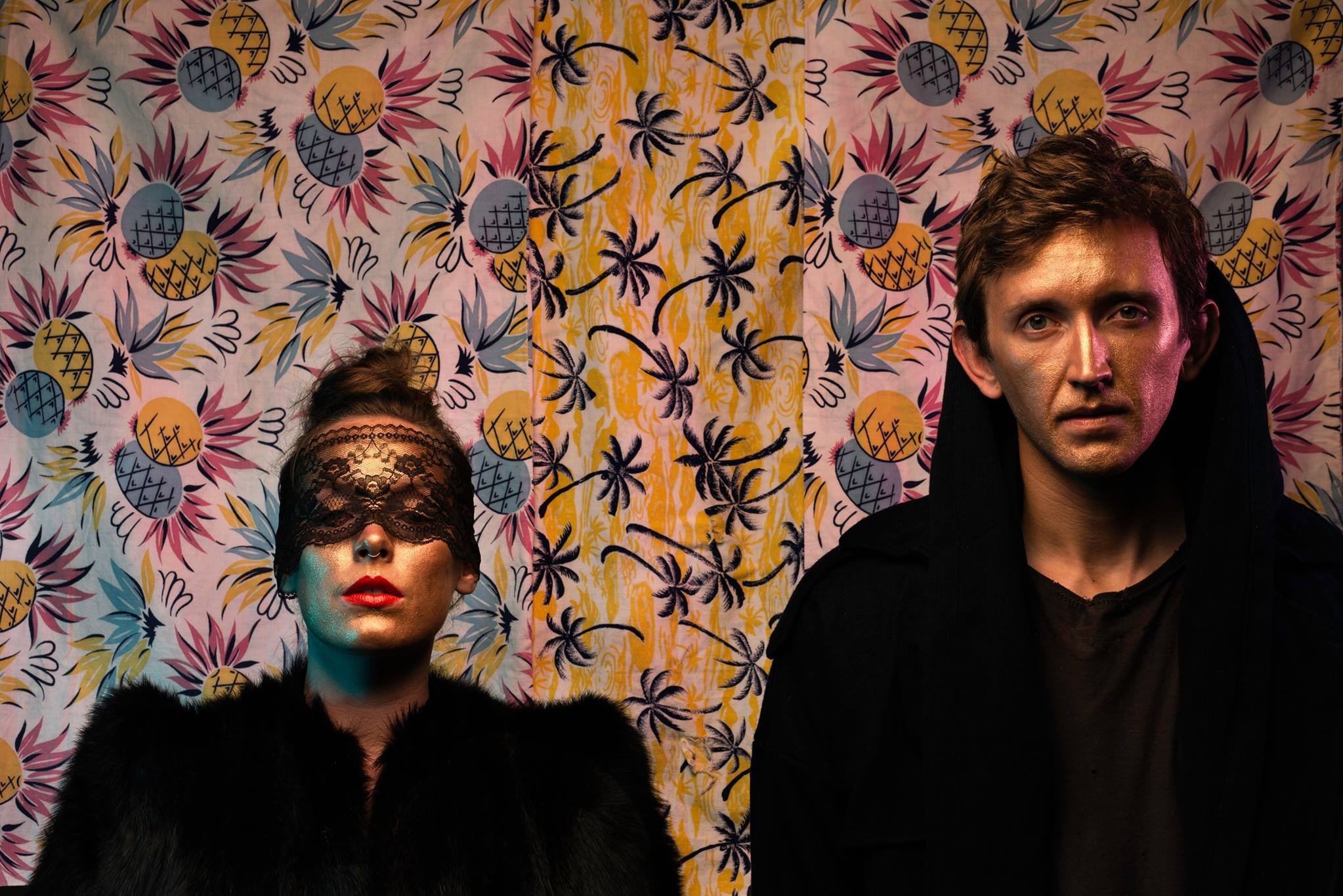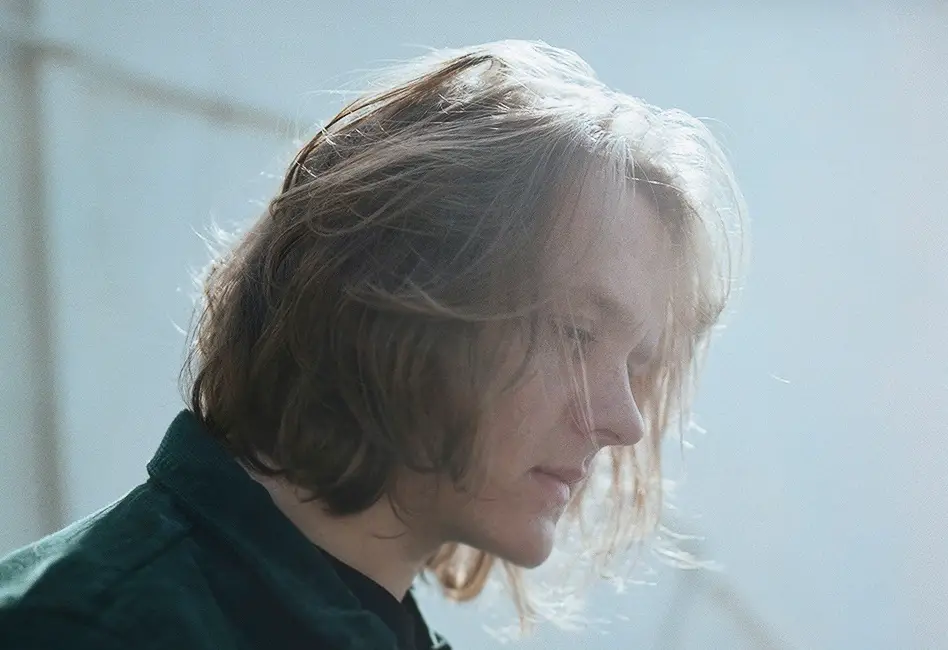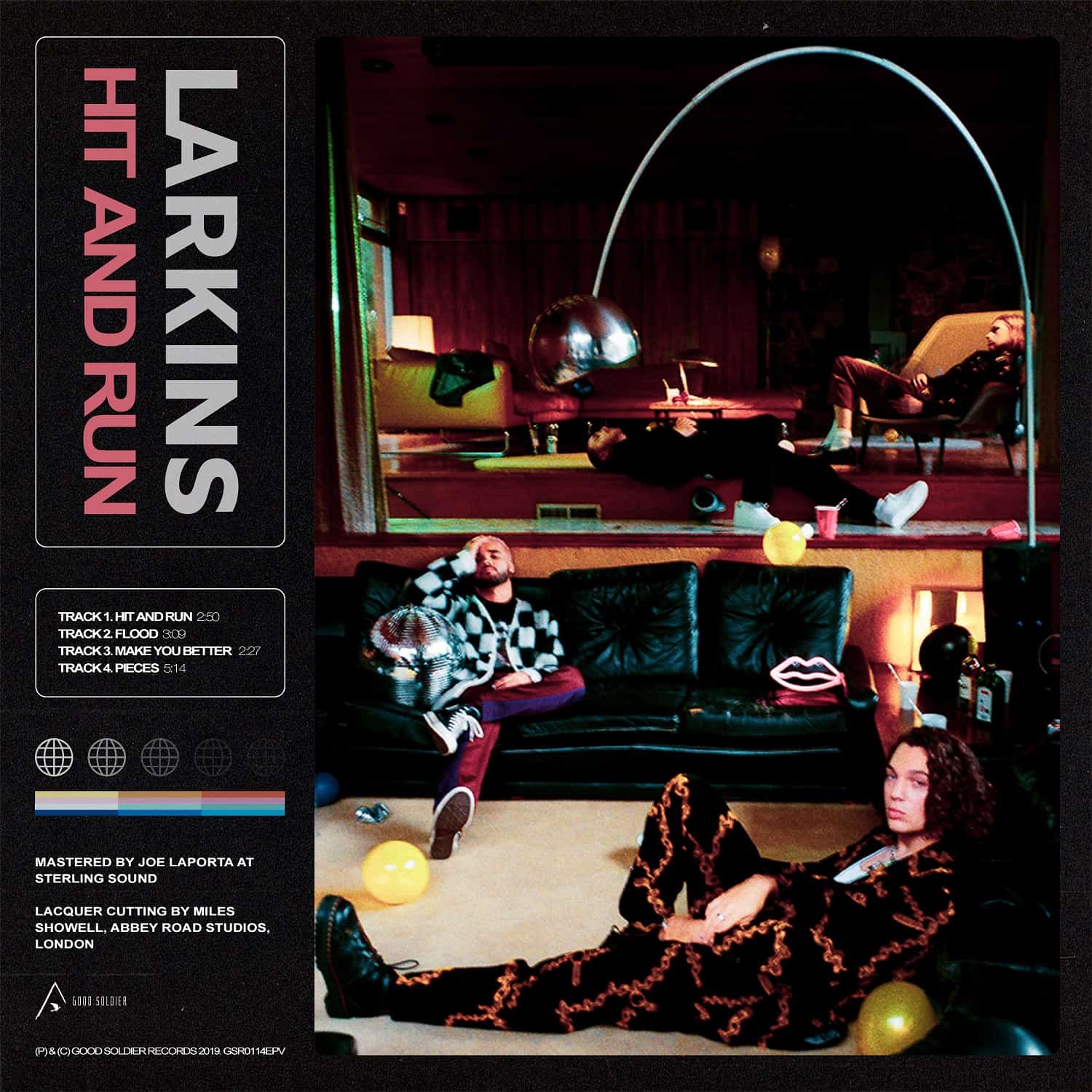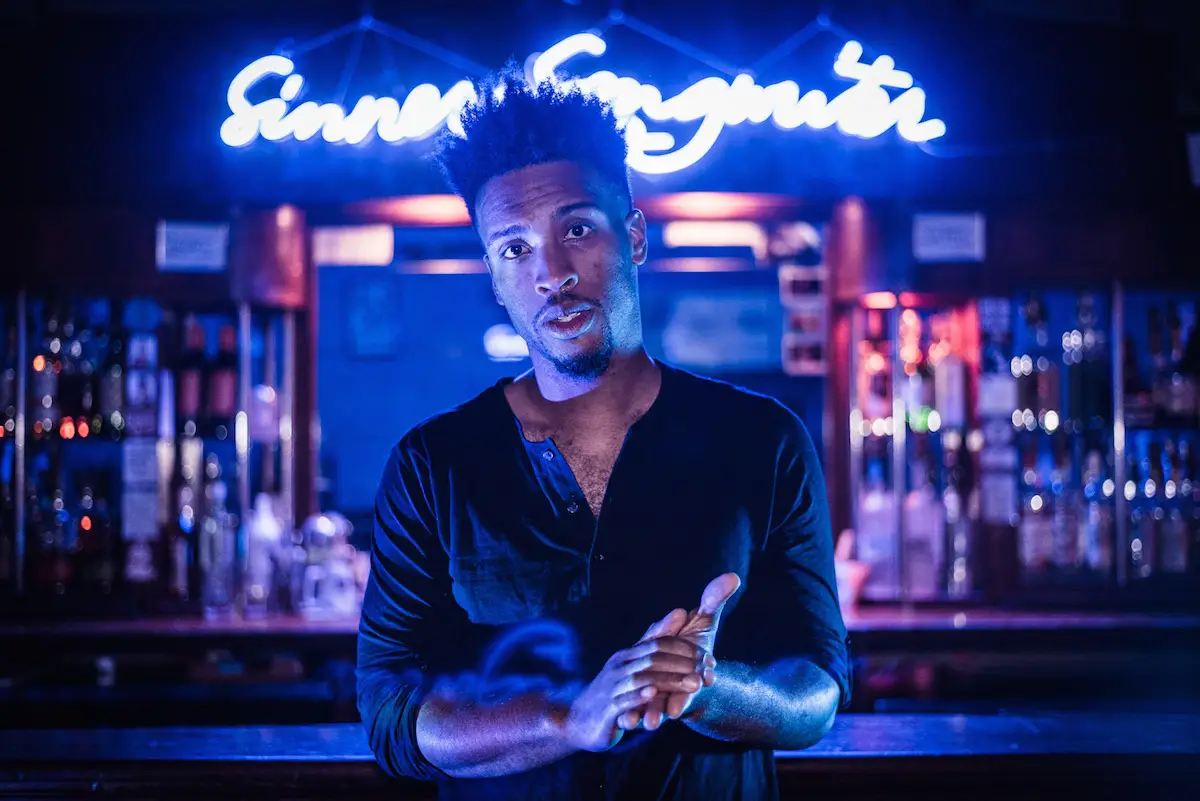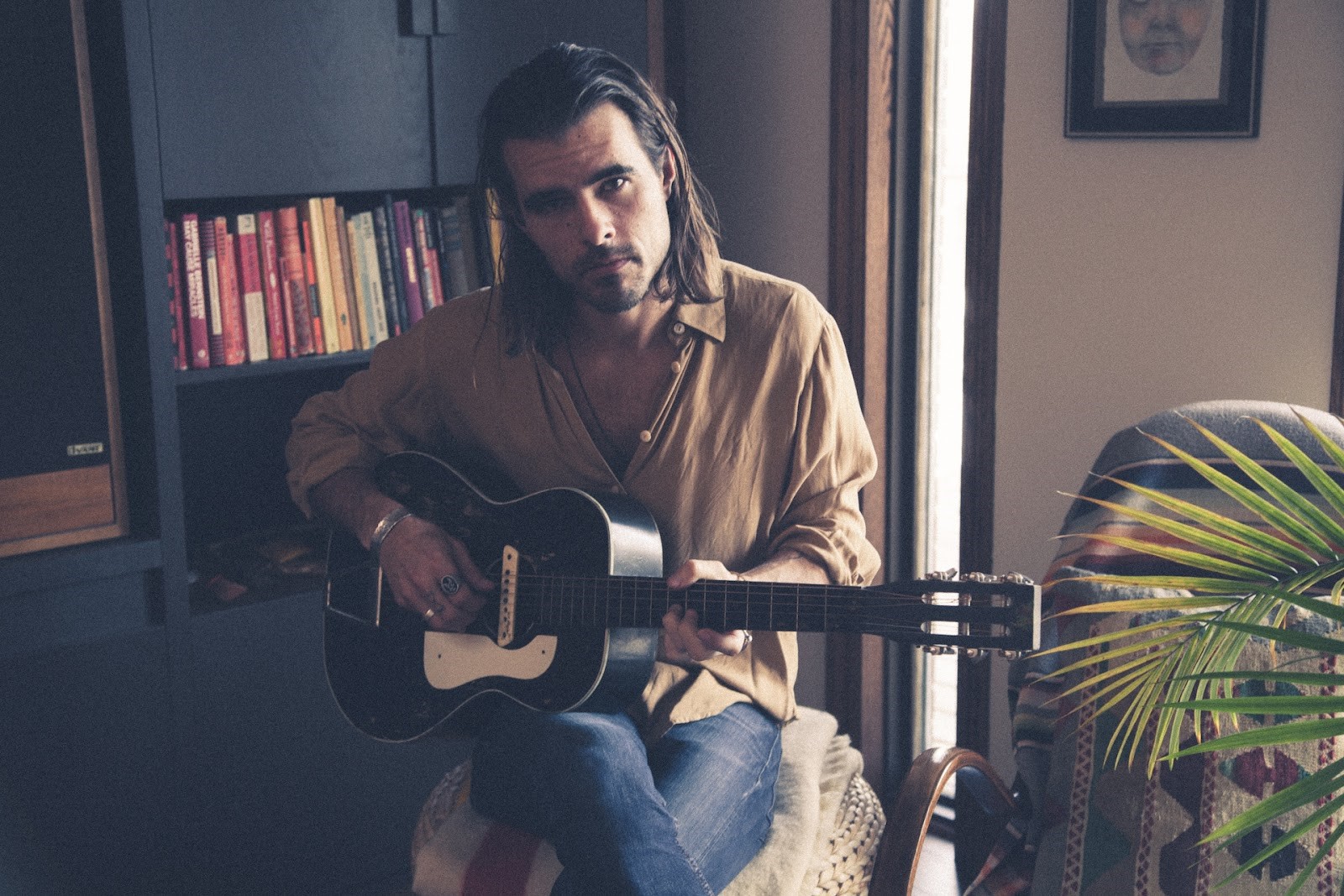After almost two decades of creating together, quirky piano-pop band Jukebox the Ghost aren’t afraid to take risks or be a little bit ridiculous in their epic-feeling sixth studio album, ‘Cheers.’
Stream: ‘Cheers’ – Jukebox the Ghost
We’ve all been playing together for so long that I think our brains are becoming one and we’re having trouble separating who we each are.
It has become increasingly rare to find a group of musicians who know exactly who they are and what they want to create, which is why Jukebox The Ghost is such an anomaly. Formed in 2006 in Washington, D.C., the New York-based piano pop band can now add their sixth studio album, Cheers, to their list of accolades.
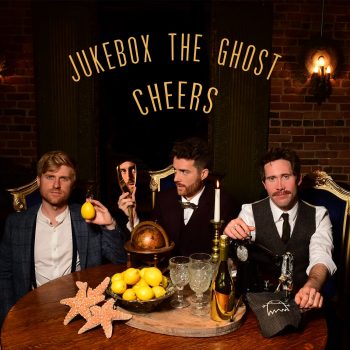
The group, who has played over 1,000 shows, consists of vocalist and pianist Ben Thornewill; vocalist, guitarist, and bassist Tommy Siegel; and drummer, percussionist, and vocalist, Jesse Kristin. Having played together for almost two decades, the trio has traversed so many genres, instruments, and concert venues that their exact niche is hard to pin down, an oddity lead vocalist Ben Thornewill seems to take pride in.
When reflecting on the band’s early days, Thornewill remarks, “here we are, this campy, quirky, piano-rock pop band, and the music community didn’t really know what to do with us. No music community really seems to.”
In his eyes, this versatility is a strength, not a weakness. This strength has allowed the band to follow passion over fleeting trends, whether that passion be their annual “HalloQueen” show, a extravagant autumn mini-tour that pays homage to the iconic British rock band, or their upcoming music video, which involves “a full brass band, a horse, [and] acrobats.”
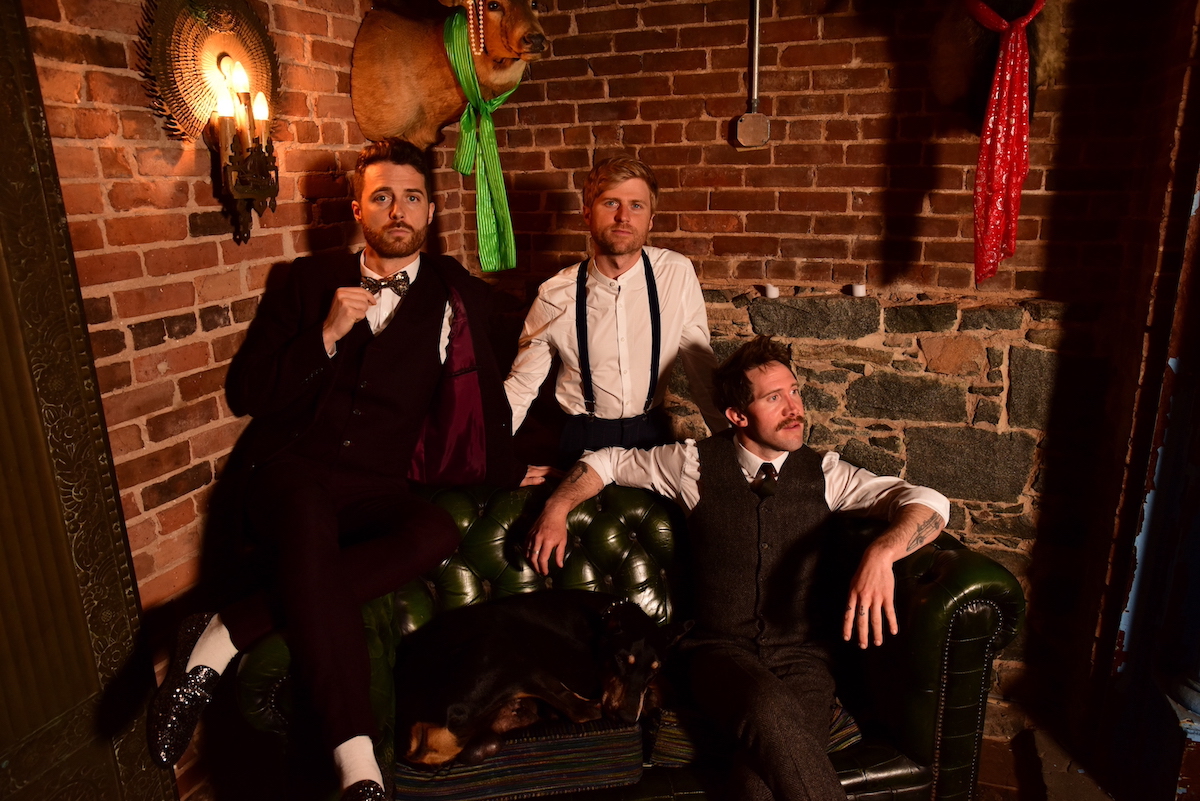
Jukebox the Ghost may be known for their quirky, zany, spontaneous attitude, however they are careful to maintain a delicate balance of impulsivity and intentionality.
Although Thornewill is the first to admit that they’re “a little bit ridiculous, flying by the seat of [their] pants at all times,” Cheers is a testament to the group’s dedication to their craft. Using various intro tracks and an interlude, they effortlessly weave together their serious, reflective songs, such as “Everybody Panic,” with their more fun, ridiculous tunes like “Million Dollar Bills” and “Brass Band.”
Despite the consumerist attitudes many artists hold towards music today, Jukebox the Ghost isn’t afraid to make their record a journey, and honors this theme rather than focusing on easily-consumable singles or catchy soundbites. From his home in Brooklyn, flanked by various pianos, microphones, and a singular djembe drum, Thornewill proudly admits, “we really do take a lot of time crafting our record so it feels like an experience you can listen to straight through, even though the world we live in is all single-driven and it all gets shuffled anyway.”
Cheers is thirteen songs long, spanning exactly 38 minutes and 38 seconds. This relatively short runtime is deceiving when diving into the record. Though many might think cycling through multiple genres, themes, and sounds in a little over half an hour would come off as hectic or overwhelming, the tracks melt into one another with shocking ease. The album starts off with the epic ballad that is “Century in The Making (Intro),” with rumbling baritone lifting the opening notes before giving way to a blend of vocals so grand that it’s almost impossible to isolate them from the delicate instrumentals.
The intro quickly transitions into “Hey Maude,” one of the band’s best songs yet.
Thornewill races across the keyboard as he admits, “you proved me the fool, I proved you the fooler.” “Hey Maude,” which was originally written in 2006 and performed for just a year and a half under the band’s original name, “The Sunday Mail,” is one of their countless tracks from the vault that has finally graced major streaming platforms. After almost twenty years of songwriting, it’s no surprise Jukebox the Ghost have a laundry list of tunes we have never heard and may never hear.
Thornewill admits, “Every time we make a record, we have the backlog of the songs that didn’t make it on to past records plus the songs we’ve written in between them, so we’ve always had too many songs, [but] now it’s too many to even count.”
Of course, “Hey Maude” has evolved since its conception, being tweaked to fit both the current social climate and the group’s sound. Starting the record off with an older track that has a more dated feel perfectly sets the stage for gradual evolution and progression throughout the album.
After two lighter songs, “Wasted” (featuring Andrew McMahon) and “Ramona,” a poppy piano beat and vocal harmony catapults us into “Million Dollar Bills,” a tune with a somewhat confusing message and even more confusing music video.
Thornewill acknowledges that “the song is kind of a joke, it’s all satire and tongue-in-cheek and you’re not supposed to take it seriously, so you’re not supposed to take the music video seriously.” Yet, just one song later, they transition to “Brass Band,” an absolute saga of a track that, true to its name, utilizes an entire brass band to punctuate Thornewill’s cravings for something more, pleading, “I want you to surprise me, turn me into myself.”
Jukebox the Ghost’s journey of cheerful-dance-beat to existential, belting self-reflection and back again continues for the entirety of the album, concluding with the melancholic, aptly-titled “Cheers!”
When reflecting on the ultimate goal for the album, Thornewill says, “We wanted to pull the the things that we loved from past records and own it a little bit, so we’ve taken some of the wackier, zanier, more ridiculous, piano-centric arrangements of the first record, and then some of the poppier, fun stuff that we learned in the later records and tried to put it together.”
Jukebox the Ghost accomplish this beautifully.
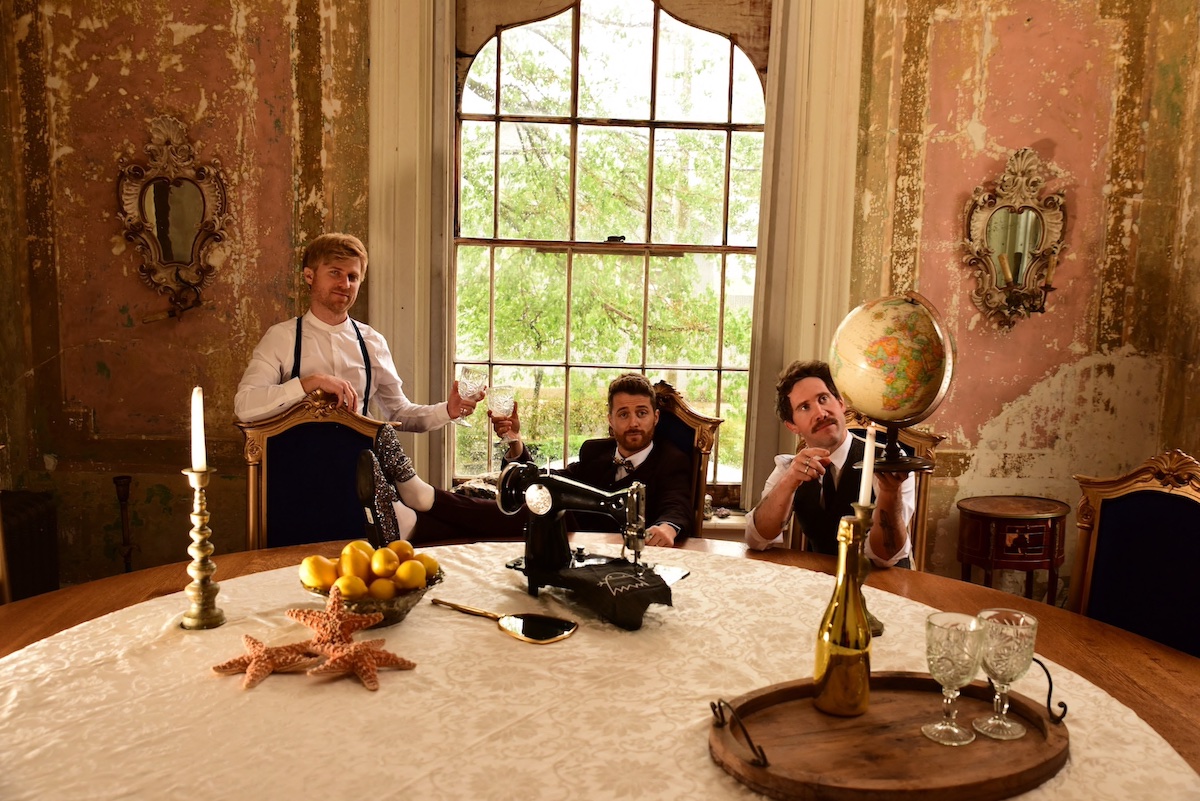
Cheers is possibly the band’s best album, with all the greatest components of their past works consolidated into one.
It may be surprising to some that such an eccentric and varied record feels so cohesive, but Thornewill makes it clear he believes that “ultimately you’ve got to figure out who you are for [yourself] and then hopefully people follow.”
Jukebox the Ghost, who set off on their almost three-month “Cheers!” tour August 3rd, have achieved this goal, with a loyal fan base that never fails to fully engage with and relish in whatever the newest Jukebox the Ghost endeavor may be. Jukebox the Ghost will always love being an oddity, and take pride in the fact that “the weirder [they] get, the more risks [they] take, generally the better the feedback is.”
We really do take a lot of time crafting our record so it feels like an experience and you can listen to it straight through, even though the world we live in is all single-driven and it all gets shuffled anyway.
— —
:: stream/purchase Jukebox the Ghost here ::
Stream: ‘Cheers’ – Jukebox the Ghost
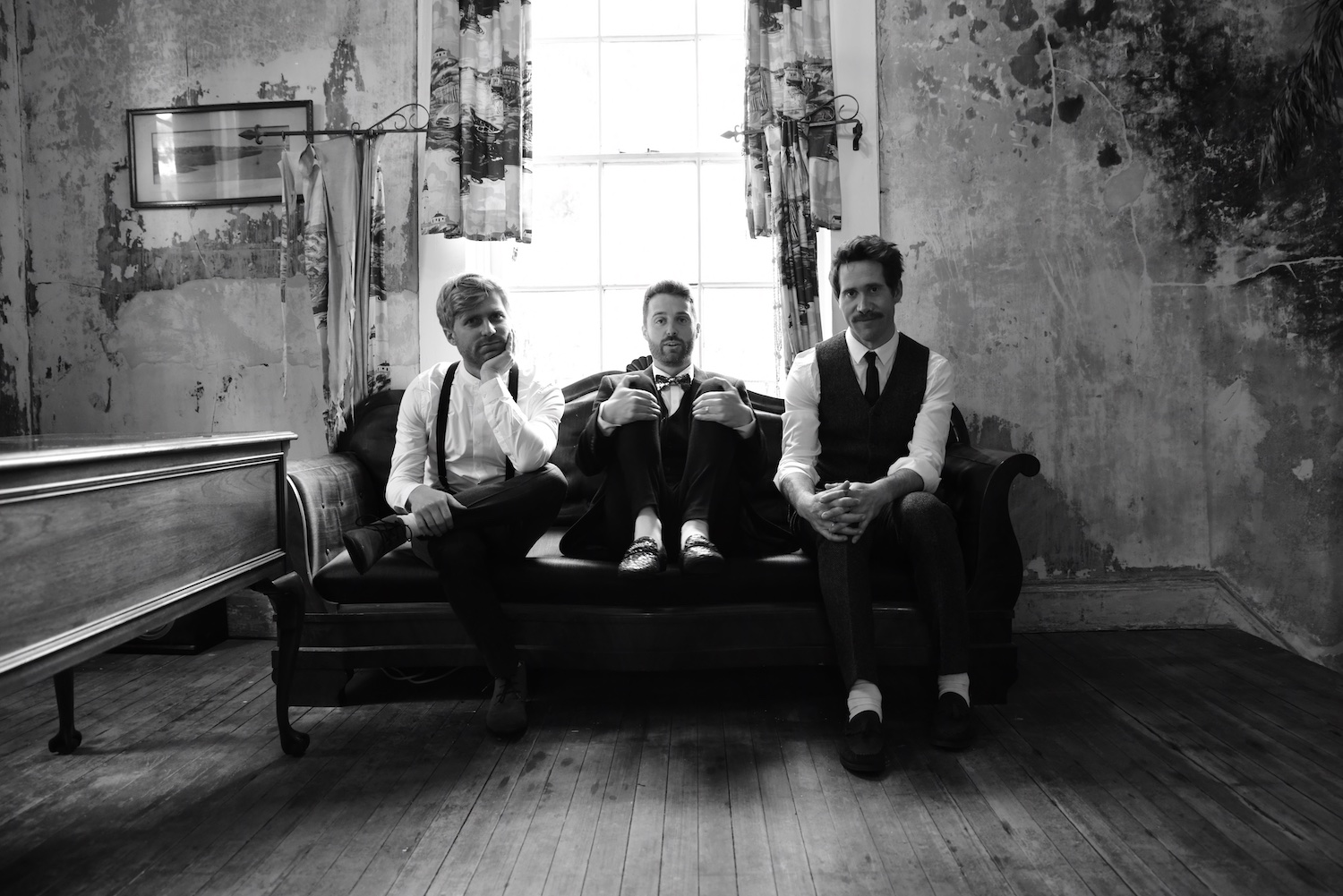
A CONVERSATION WITH JUKEBOX THE GHOST

Atwood Magazine: I want to start off by saying that I’m originally from DC and I grew up spending a lot of time around the George Washington University campus, so “GW” being a part of your guys' origin story is so cool!
Ben Thornewill: I mean, we played every show imaginable while we were at GW, on every patch of green space, every benefit concert, frat party, everything, so yeah, it was a fun place to go to college, anyway.
I feel like the music scene in DC is so underrated, there's so much different music that comes from being right on the border of the South and the North. You get a great blend.
Ben Thornewill: People always talk about DC like this transitional city people live in for a couple years and come in and out [of], but it’s definitely got this subculture of cool music and people making things. I don’t know, they’re taking chances, they’re like, “I’m only in this city for a few years, I’m gonna make something weird and see what happens.” But it’s a cool town. I loved it.
I was looking at some of your older stuff, and you guys have described your 2018 album, Off To The Races, as a glimpse into Ben’s brain. Which band member’s brain is Cheers a glimpse into?
Ben Thornewill: It’s a glimpse into all of our brains when we [were] trapped in the [studio] together. This is the first time that we self produced, that we self-recorded, and so I think song by song, you can figure out whose brain you’re diving into. Like, “Brass Band” is entirely my brain, [while] some of the more heady, wacky songs like “Century in the Making,” that’s a hundred percent Tommy [Siegel]’s brain. We’ve all been playing together for so long that I think our brains are becoming one and we’re having trouble separating who we each are.
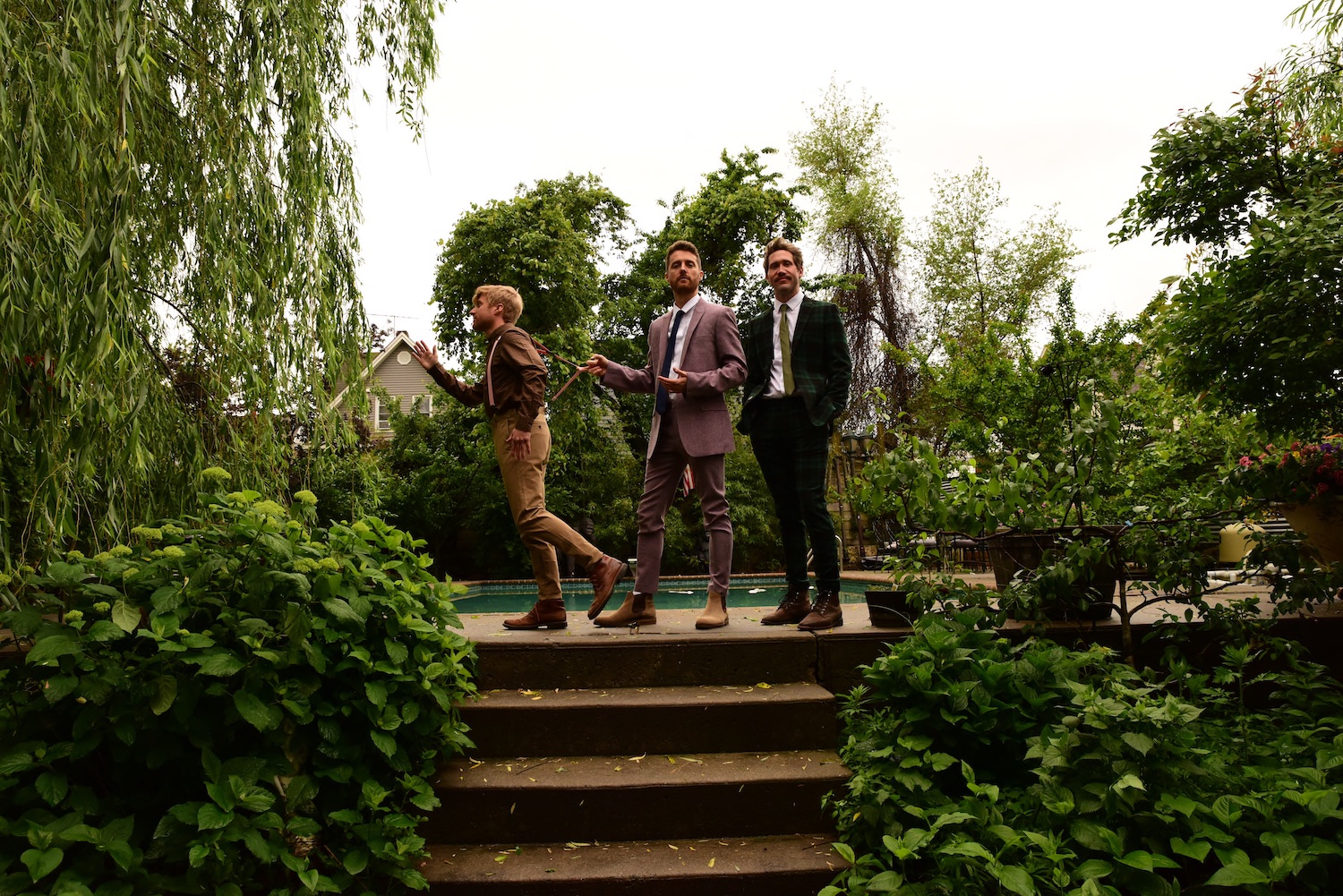
I saw you guys quarantined for around 6 months to work on Cheers. I think you can definitely see this in just how interwoven the album is, but that must have been very intense.
Ben Thornewill: The quarantining and the pandemic, it was intense for everybody in their own crazy ass way. We [quarantined together] like four to six weeks at a time, and then everyone would go back to their pandemic hideaways. But it was super intense because there’s a little studio here [in New York], I live close, and the guys rented an Airbnb right next to the studio, so we were living in the same space, working in the same space, kind of like we used to do back in college. In the early days after we first started touring, we all sort of lived together, but of course now we’re older and theoretically wiser. It was cool and very intense.
One thing I’ve noticed in multiple album reviews of Cheers is that listeners feel you guys have already gone through a couple different music styles by the time we get a third of the way through the album, and I just love it. It's so much of your old stuff and then a lot of new stuff too.
Ben Thornewill: That’s very on purpose. This is album six, which is such a ridiculous number of records, no one should make six albums, but we seem to keep going. We wanted to pull the the things that we loved from past records and own it a little bit, so we’ve taken some of the wackier, zanier, more ridiculous, piano-centric arrangements of the first record, and then some of the poppier, fun stuff that we learned in the later records and tried to put it together. Like, “we like the way that we did this, and maybe we can avoid some of the things that we’ve done in the past,” but we really tried to mix it all in there.
Of course there's “Hey Maude,” which you guys started - well, I’ve heard everything from 15 years ago to 17 years ago, so I'm not sure which is the accurate number, but that's obviously got to be very big. What did the song first look like when you started with it, and how did it get to where it is now?
Ben Thornewill: It was a song that we wrote when we were in college, and there were some questionable lyric choices. It’s both the mindset of an idiot 19 year old guy mixed with things that you might say then but wouldn’t say now, but [it] even had some lyrics [where] we were like, “That doesn’t feel right” two years after we wrote it. I actually wrote it, if I want to do the math, I think [in] 2006, and we only played it for a year and a half and then decided not to put it on that first record. If our first record had one more song, it would’ve been on there. A lot of it looked the same. The basic structure was the same, some of the lyrics were the same.
Interestingly, I used to say “Hey Mode,” that’s how we pronounced it. A lot of our friends from college were like, wait, what is “Hey Maude,” it’s “Hey Mode,” because it was about this French-Canadian girl that I met and she pronounced her name “Mode,” but we thought that was too confusing so we changed it. There’s some harmonic stuff, some song differences, and also we pronounced the whole song differently. It’s also me being a classical pianist and trying to write pop songs and losing my mind all the time on too much caffeine.
Another favorite track of mine is “Everybody Panic.” When I first heard about Roe v. Wade getting overturned, I was literally listening to that song, so -
Ben Thornewill: No way.
I promise you, it was the craziest experience. And I kind of hate that it gets more and more relevant, but it gets more relevant. Obviously the pandemic was a big driving force behind the creation of that song, but of course the apocalyptic themes you guys tend to utilize too.
Ben Thornewill: There’s two songwriters in the band, so Tommy wrote that one, and then we all pieced it together. That feels like the world that we’re in now, where there’s so much to be furious about, and upset about, and the way the media and social media [is] and everything, we’re supposed to be upset all the time. And in many ways, we are, but also we have to do it in a very specific way and have a very specific tone. Especially with Roe v. Wade and the other stuff the Supreme Court is threatening to overturn and mess with, it feels like I wanna go and scream and run around, but I don’t know how to or who to yell at, and even if I did, there are rules and regulations for how you’re supposed to be upset these days. I feel like we all have this low level panic all the time and we’re trying to figure out what to do with that.
I feel like we all have this low level panic all the time and we’re trying to figure out what to do with that.
I know that in the past for a lot of your albums, you would start off with around fifty songs and then just narrow it down. Did you do the reverse process again for Cheers?
Ben Thornewill: I mean, yes and no. We actually recorded [around] 25 songs, and we just have a whole ‘nother record waiting to come out. In the past, and this is the benefit in working in our own studio, we would have to pick the 12 songs when we got in with the producer, [or] when we started paying the daily rate for whatever studio we were in. [This time] there was no daily rate. It was just us, in a room, making music, so we recorded all of it. So yes, there are songs that didn’t make the cut for one reason or another. Every time we make a record, we have the backlog of the songs that didn’t make it on to past records plus the songs we’ve written in between them, so we’ve always had too many songs, [but] now it’s too many to even count. Adding a song like “Hey Maude” into the record, that’s one that’s been sitting on the back burner for a long time, so it takes the number down by one.
There was this super old interview I was reading from 2014 where Tommy said that your self-titled album is the album he would want you to be able to play at a party the whole way through. What would be the ideal event, do you think, for Cheers to be played at, beginning to end?
Ben Thornewill: I have no idea! Do people even do events anymore? Like are we allowed to go in public? I always think of our records as good road trip records, or so many people are like, “I run to your albums,” whatever that means. Going out and doing something. I don’t think it’s a “sit-in-a-room-and-listen-to-it” [record], I think it’s a “have-some-sort-of-activity-and-listen-to-it” record. I go on a lot of bike rides in the park when I’m trying to listen to a record, that’s my thing.
Our records before [our self-titled record] had one or two very slow, mellow songs that would kind of take you out of the element, [but] I think this record really flows nicely. I think that you could put it on in the background – I hate background music, I never listen to music like that – but put it on in the background and have an experience with it. We really do take a lot of time crafting our record so it feels like an experience and you can listen to it straight through, even though the world we live in is all single-driven and it all gets shuffled anyway.
You also did music videos, two of them! They both have the fun element behind it, but the vibes are just so different. The “Million Dollar Bills” music video was very quintessentially New York, while “Wasted” was more about taking a break and you guys being together. I would just love to hear more about the process behind shooting the videos and the ideas behind them.
Ben Thornewill: I feel like whenever we’re approaching a video, it’s complicated, it’s really hard. When I’m writing a song, I’m not always thinking visually. For “Wasted,” I wrote that song with Andrew McMahon who’s featured on the tune and was kind enough to join us for the music video. That one we worked with the cinematographer or music video director who built that concept, built the premise. We loved the idea of it being clean and outdoors and slightly epic-feeling, because it’s a sort of epic-feeling song.
Then, with “Million Dollar Bills”, I just wanted it to be absurd. The song is kind of a joke, it’s all satire and tongue-in-cheek and you’re not supposed to take it seriously, so you’re not supposed to take the music video seriously. I wanted it to just be joke after joke after joke that you could then look at and be like, “are they talking about cryptocurrency? Are they talking about this? Are they talking about that?” The music videos are song by song. We have two more music videos coming out this summer, one for “Cheers,” and one for “Brass Band” that again each cater to the song itself. I think our videos are always better when they don’t take themselves too seriously. We’re kind of ridiculous, and whenever we try to go too polished, that’s just not who we are, we’re just not all that polished. We’re a little bit ridiculous, flying by the seat of our pants at all times.
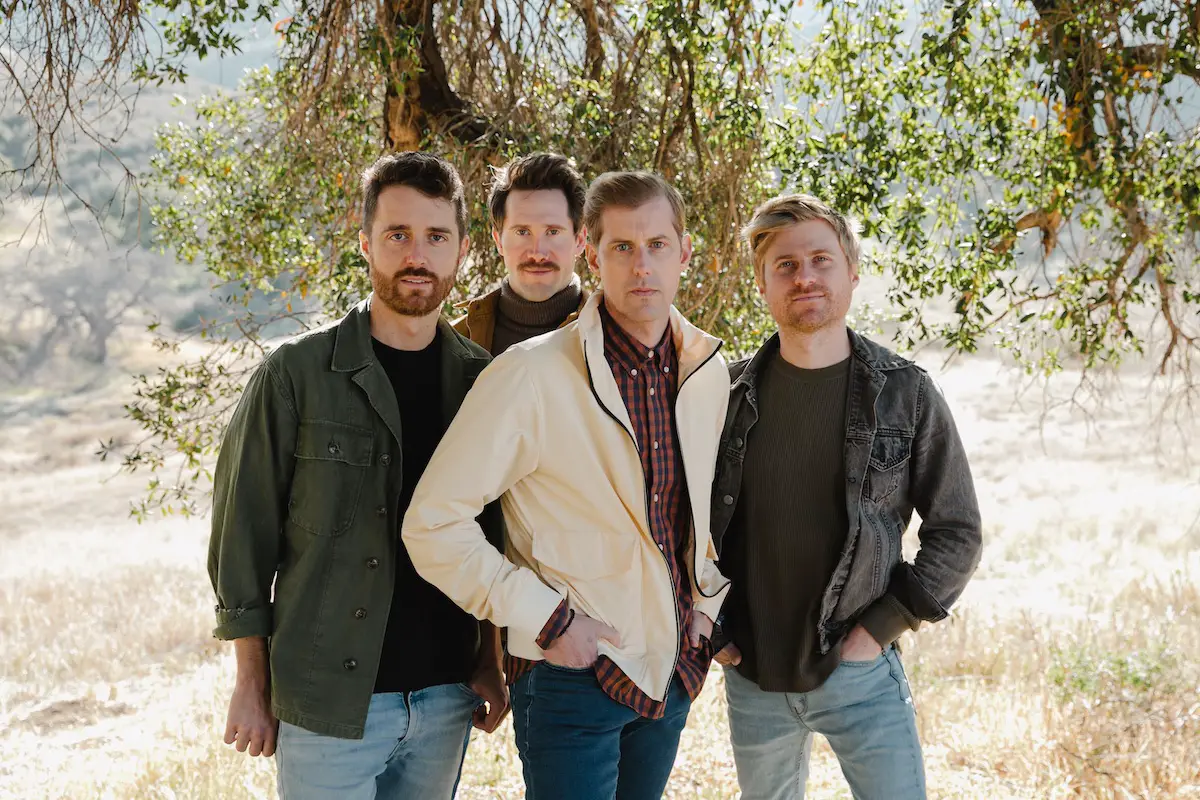
You mentioned “Brass Band” and I feel like we have to talk about Brass Band. Such a phenomenal song! I’ve seen plenty of people tweeting, “Oh my god, this is exactly what I was looking for from this new album,” and it’s very much a “Ben Thornewill” song, too, right? The writing, the producing…
Ben Thornewill: It’s the only tune on the record that’s entirely my brainchild. I started writing it, I built the hook, I produced the whole thing, and I was like, “I think this is kind of it!” and I brought the guys in. I remember I wrote it and went to show it to my now-wife and I was like, “I’ve either written the best thing or the worst thing I’ve ever written. What is this, what have I done?”
She gave the thumbs up, which was helpful. I wrote that in the pandemic, thinking about being bored and also trying to feel something. I love that tune. And I will say, without a doubt, when this music video comes out, it will be the most over the top, ridiculous video we have ever made. I’ll just say, there’s a full brass band, a horse, acrobats, it’s ridiculous.
Perfect. Well, you’re going on tour soon! I’ve heard that Tommy said in some different interviews that he likes to mess around and have a different kind of setlist each show, just play with it a bit, while Jesse likes to keep it consistent. What do you think, what is your opinion on the setlist debacle?
Ben Thornewill: There’s something to be said for knowing what you’re going to play and having it rehearsed so you can have a real, nice, clean set. I love chaos on stage. I love it when we screw up, I love it when we’re like, “let’s play this song instead.” I feel like being onstage, the whole point of going to the live concert is one: to experience music with other people, and feel that community and energy, and two: [knowing] there is risk involved.
There is an inherent risk that someone is going to screw up, and that is awesome. I don’t care if you’re in a classical concert, jazz, whatever, these are humans being humans and you don’t know what’s going to happen. When I’m on stage, and Tommy feels the same way, you want to feel that sense of drama. I don’t know what’s gonna happen, and so, shaking up the setlist is a really nice way to do that.
I think what we often do is we have little chunks of the set where we’re like, “OK, we know these four songs go really well together, this is an end of the set song, this is an opening song,” and for the middle, we’ll leave some room for chaos and excitement.
I love the “Spin the Wheel” aspect of one of your more recent performances, getting the audience involved is great. For your upcoming tour are there any elements like that?
Ben Thornewill: We haven’t gone into rehearsals for the new tour yet, so I don’t know. A lot of the new tour will be focusing on the new record and trying to make that kick-ass and do its thing. Having the “Wheel of Fortune” wheel, where we put old songs in each of the spaces and have someone in the front row spin it, we might do that again.
On this most recent one, you could either win a dollar on one space, or you could have to give us a dollar on another space. We collected a couple bucks on the course of that tour. Somebody rolled a “give us a dollar” and then immediately won their dollar back, so that was satisfying. That’s the kind of chaos I like doing. I don’t know if we’ll bring the wheel back, but I hope so. It’ll definitely be with us.
On this most recent one, you could either win a dollar on one space, or you could have to give us a dollar on another space… That’s the kind of chaos I like doing.
Another thing that I kind of hate to talk about, but we need to talk about, is that you’re touring post-pandemic! It’s like a new world, it’s a new experience. How are you guys going about that? It must be a little scary and a little exciting.
Ben Thornewill: We’ve done two tours since the pandemic ended, and [for] the fall tour, we kept things super tight knit, we didn’t go into restaurants, do anything, and both Tommy and Jesse got COVID, but weeks apart. Over the course of this tour, COVID never spread, they both got it, and [quarantined]. Half of the tour was either a duo show with me and drums or me and guitar, and our fans are amazing, and they rolled with it, and that was great. By March, we’d all gotten it, and so, we did this next tour, and no one was that worried because we’d had it and we were within the happy window, and that was great. We were leaving it up to the fans’ discretion.
I don’t know what the fall’s gonna look like. We will react to what’s happening and we hope people come and do whatever they feel is safe and respectful. Touring last year through different cities, it was like microcosms of America. You’d get to towns where no one’s in a mask, and you’d get to towns where everyone’s in a mask, and everyone has a different level of risk that they’re willing to take. I don’t know, we’ll do the game, we’ll dance the dance, and we will hope that everyone does what feels right to them. I think that beyond that, that’s the world we live in right now.
New York was in this thing where we were all masked and then no masks. We’re always like two months ahead of the rest of the country, in terms of what’s happening. A couple of months ago, my family lives in Kentucky and I was going back, and everyone in New York was in masks again and no one in Kentucky was. I was just like, “Guys, look out, it’s coming. You don’t know this, but in six weeks, we’re all gonna be panicking,” so…
Oh, yeah. Everybody panic…
Ben Thornewill: But one at a time!
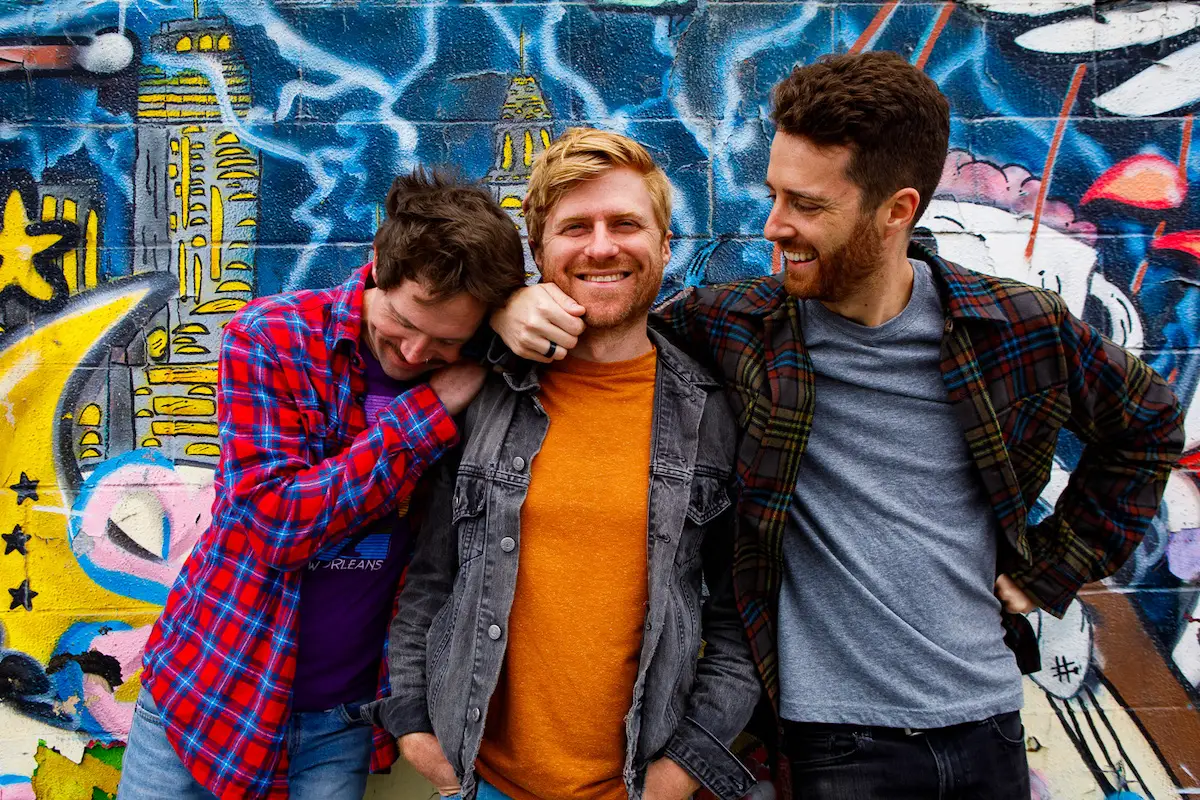
Touring last year through different cities, it was like microcosms of America. You’d get to towns where no one’s in a mask, and you’d get to towns where everyone’s in a mask, and everyone has a different level of risk that they’re willing to take.
I know this was so long ago, but you had this era in DC and the DC music scene, playing these frat parties and these green spaces, and then going to New York, which has such a different music scene. It’s so different, I can’t imagine transitioning the band there.
Ben Thornewill: I always look at New York as the thing to attempt to conquer. It’s always been the most magical city in the world to me. I loved DC, [and] I didn’t wanna go anywhere else for school. I wanted to be in DC, I thought it was just the coolest city for being able to wander around and be a college student and experience [things.] We had trouble breaking through into the DC music scene because DC was always more like Fugazi, heavier, rock stuff, and here we are, this campy, quirky, piano-rock pop band, and the music community didn’t really know what to do with us. No music community really seems to, but, [in] DC we kind of just had to plow ahead and find our space, and since then, the city’s been awesome to us. We built a community in DC, and we [would] play, at that time, [for] a couple hundred people, and that felt really good.
We had to start from scratch in New York and build up and build up and build up. We’ve always built our communities by touring. We were on the road for the first ten years of being a band pretty nonstop, so [if] we had friends in New York, it’s because we toured with them, or friends in Philly, it’s because we toured with them, or friends in LA, it’s ‘cause we toured with them. That’s just kind of how we built it out.
Because you’ve been playing so long, you guys have a very, very loyal fanbase who just keeps coming back year after year. With you wanting to try new things and still cater to the people when you know what they want, what’s that like for you?
Ben Thornewill: I heard an interview, and now I can’t remember who it is so I’m just going to steal their idea, but you need to write not for what your fans want now, but what they’re gonna want in a year. That’s also writing stuff that we like and we believe in and I think on past records there are songs [where] we’ve tried to tap into the zeitgeist of whatever’s happening at that moment, and it’s synthy, or we’re doing “oo-oh-ohs.” [Now, we] make the music that we like, don’t worry about what’s happening, and hopefully the fans follow, and we’ve earned some trust.
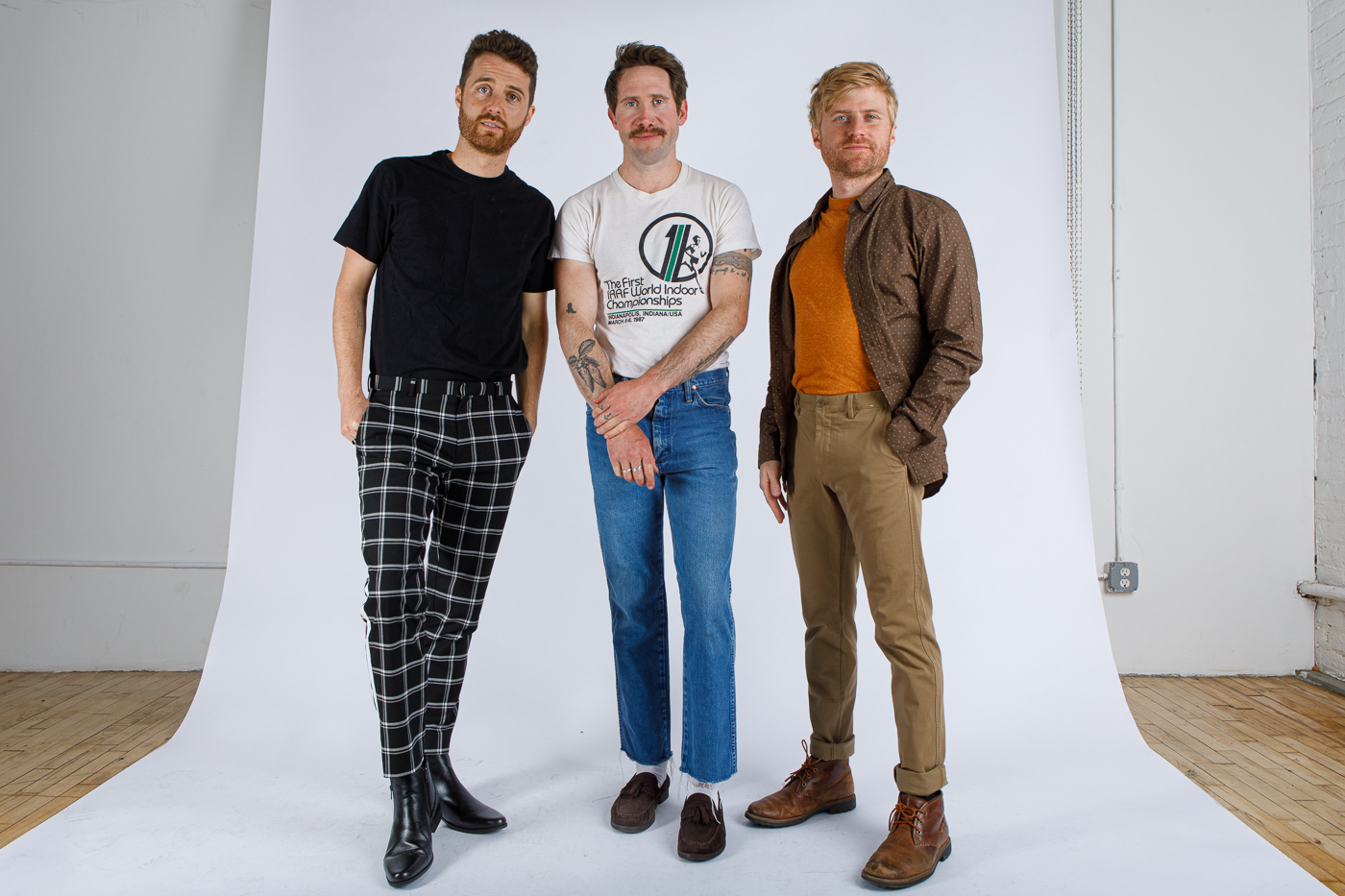
You need to write not for what your fans want now, but what they’re gonna want in a year.
I think you can definitely see that with “Hey Maude” and “Brass Band,” which are probably what people expected the least from you guys yet now have become some of the album favorites.
Ben Thornewill: You know it’s funny, it’s a lesson we keep trying to learn. The weirder we get, the more risks we take, generally the better the feedback is.
You were talking earlier about listening to music on shuffle and how that’s what a lot of what music is today. I think the approach you take is very refreshing and different. It’s doing the quirky thing, doing what you want to do instead of just following the trends.
Ben Thornewill: It’s funny because when you’re trying to build a career, and I imagine this [goes] for any young band starting [out], you try to find your space in the world, as anyone does. As a human, you’re trying to figure out what column you fit under, and who you are, and how you are, and whatever. There’s this funny thing where you want to be [a] part of the community, and you want to sound like this, or do this, or fit into this bubble, but ultimately you’ve got to figure out who you are for [yourself] and then hopefully people follow. It’s super scary.
I saw you guys had retweeted a tweet saying that Jukebox The Ghost makes music for people who are in love with girls named after grandmas, because of the songs “Hey Maude,” “Ramona,” “Diane,” etc. If you had to choose two defining characteristics for the average Jukebox The Ghost listener, what would you choose?
Ben Thornewill: Unfortunately, it’s not grandmas. I would say nerdy, but I mean that in the coolest way, and earnest, but that also could have an icky connotation. I don’t mean it! Our fans are just really nice, easy-to-be-around people and are usually kind of nerdy, whether it’s public nerdiness or a deep, pushed-down nerdiness.
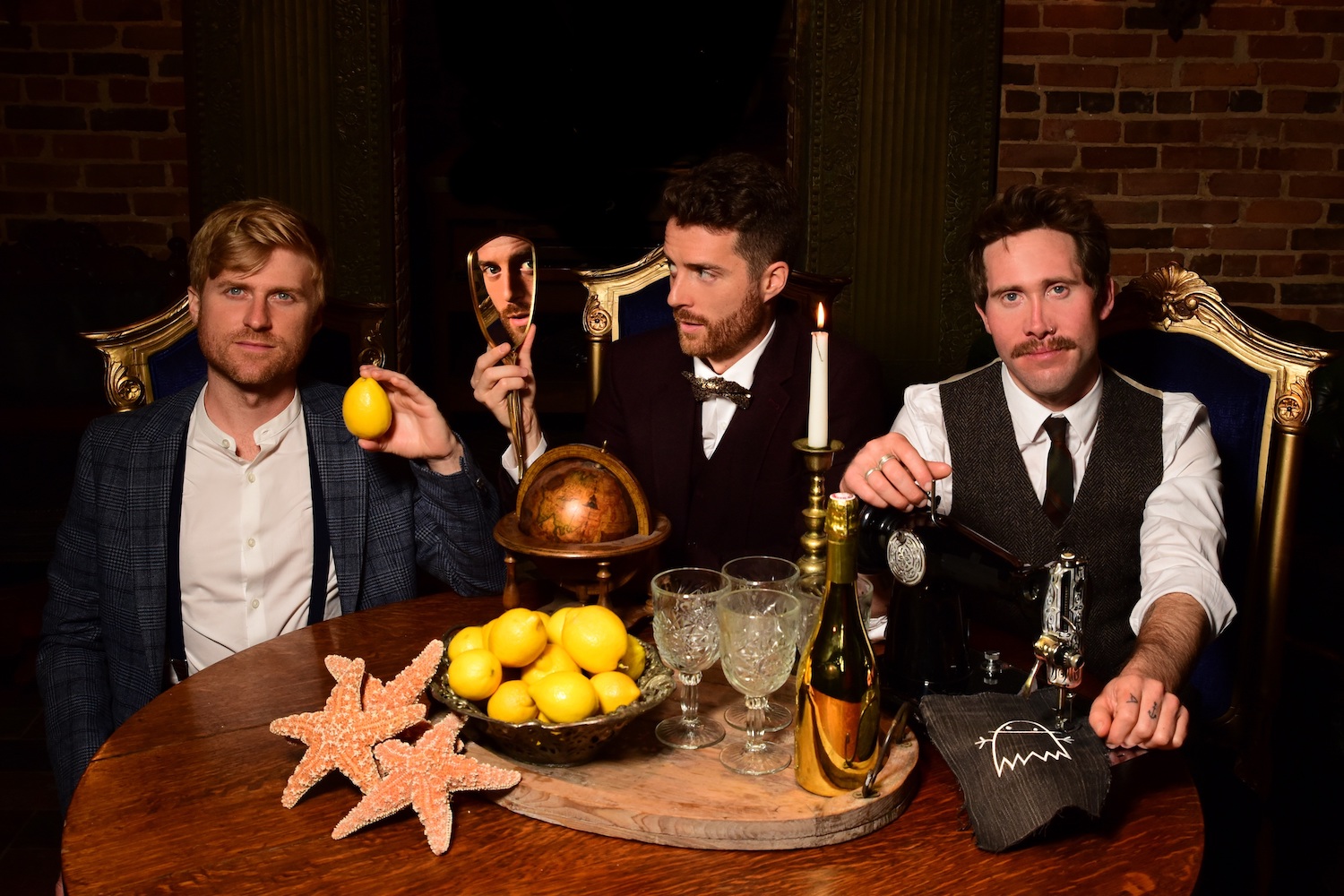
I see a lot of support towards you guys from the fans, not any drama or anything like that. It’s very calm and loving.
Ben Thornewill: It’s funny, all over the country, they’re kind of the same, it’s the damnedest thing. I can meet a fan in New York and Texas and Wyoming and it’s like, “oh! I know you! You’re another version of this person I know from another city!” Our fans are generally, and I can’t believe I get to say this, good people. I don’t worry about them when interacting or hanging out or whatever.
HalloQueen 2022 is coming! I’m sure you guys are very excited about that, I feel like it’s something you guys are really known for.
Ben Thornewill: It sort of keeps on building and turning into something, and it keeps growing. Have we announced [the dates] yet? It’s definitely happening. I think we’re doing DC, New York, Salt Lake City, and Denver this year. We try to do a couple different cities and it’s just always fun to do a hometown HalloQueen show.
Ultimately you’ve got to figure out who you are for yourself and then hopefully people follow. It’s super scary.
— —
:: stream/purchase Jukebox the Ghost here ::
— — — —

Connect to Jukebox the Ghost on
Facebook, Twitter, Instagram
Discover new music on Atwood Magazine
? © Shervin Lainez
:: Stream Jukebox the Ghost ::

